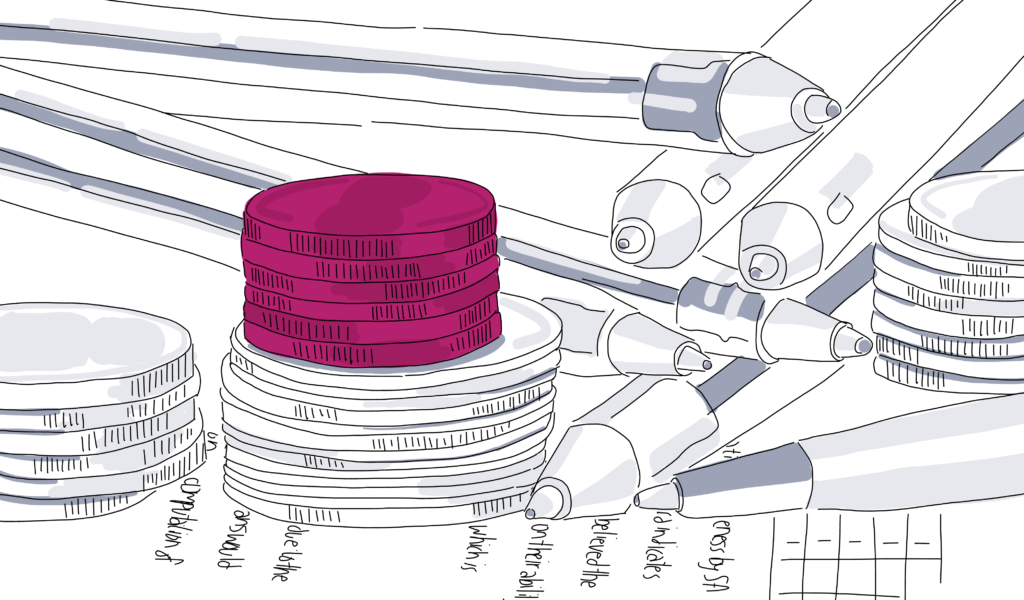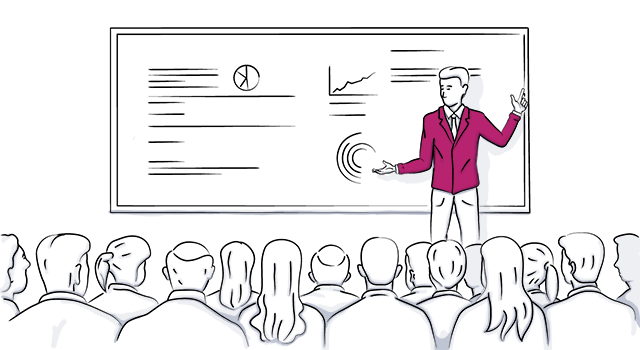
Tech Thursday: 10 Innovative Ways CRMs Drive Group ROI
Within one hotel, customer data is often housed in many systems across sales, the front desk, restaurants, and catering and event teams. Many of these systems do not communicate with each other, and as a result, useful customer data remains disconnected.
So current and prospective group customers experience delays and frustrations, and hotel managers miss opportunities to improve the customer experience. Sales teams lose leads and have difficulty landing repeat business.
And that’s just within one hotel. Among a hotel management company’s properties, the problem is magnified, with hotels missing significant opportunities to use customer data for better CRM ROI by learning from each other.
Hotel group customer relationship management (CRM) software addresses this problem by providing a central home for the data from all these systems. The data can be used to form a roadmap of how much revenue to expect from different segments at each property.
Then changes and improvements can be tested, data on outcomes can be tracked, and accountability improves. CRMs also allow savvy managers to unlock additional revenue streams.
Explore unique ways hotels and hotel management CRMs drive ROI:

1. Discover and target top customers faster
Ease of customer segmentation is one of the most touted benefits of a hotel CRM, and for good reason. To maximize ROI, information about the most profitable customer profiles is a must-have. With this insight, you can better target your offerings, rates, and marketing to those customers specifically”and spend fewer resources going after your less profitable customers.
Customer segmentation will also help you market most effectively. For example, does a particular property do well with small, budget-conscious group business? Consider highlighting options for breakout sessions (small rooms, partitions in a large room); feature F&B cafe options such as cheaper coffee and bakery items, and use specific words in your ads that will resonate, like ˜budget-friendly’ and ˜perfect for small groups.’
This type of customization makes the target audience think, Hey”that’s just what we need!
2. Nurture high-quality leads and repeat customers
Equip your sales team to spend the most time on the best leads using lead scoring. As you discover which prospects are most likely to become new customers, and which are most likely to become satisfied repeat customers, you can further refine your lead scoring algorithm.
Once you have identified and attracted your most profitable customers, your CRM can help you nurture them.
For example, let’s say a particular property does a lot of business with traveling baseball teams. Maybe you decided to target that market segment by adding large-screen televisions to a meeting room for ease of reviewing game footage, and aggressively marketing to baseball teams with that information.
Now you can pay special attention to baseball teams, getting in touch with your contacts and prioritizing their bookings as the season gears up.
You will also likely receive inquiries from new teams; you can use the CRM to make clear who is responsible for communication with which leads. Sales reps can note win/loss reasons to help track trends.
Once groups have booked, keep nurturing the relationship with them. Have the details of their visit available so that the front desk can welcome guests and answer questions during check-in. Set reminders to check in on business meeting attendees to make sure they have all they need”plenty of chairs and fresh coffee.
Then automate follow-up, so that the next time a company has its annual strategy retreat, the great experience at your property is top of mind.

3. Examine data across properties
Across a large hotel group, data can become siloed within separate hotels, and larger trends can slip beneath the radar. Examples of possible missed customer details include:
- Customers leaving one property in your portfolio in favor of another.
- Regular group customers of one property who are a better fit for another property they may not know about.
- High gym usage at a hotel that draws traveling sports clubs and other athletic groups.
Identify top performing properties and discover the levers that might be making them more successful: Do they get more leads? Do they send more customized proposals? Is their response time faster?
This information can then prompt further research, targeted marketing to help customers discover the best properties for their needs, and even suggest needed renovation projects.
4. Evaluate renovation and improvement opportunities
Hotel management corporation managers must evaluate a steady stream of proposals for improvements, upgrades, and changes to their properties. Think lobby renovation, room refurbishment, or turning a rooftop into a restaurant.
CRM data and tools can help evaluate these opportunities. In addition to tracking the cost of completing the project, you can calculate how much revenue a property would lose if a construction project put an event space out of commission for weeks and compare that with projected ROI gains if the renovations generate increased bookings for the space.
Another useful tactic is running pilot projects. For example, instead of renovating all of the lobbies within a hotel group, start by renovating just one or two lobbies. Then use CRM ROI data to track customer response and changes in customer behavior so that you can determine the value of the revamped lobbies.
5. Streamline events and group bookings
According to American Express Meetings & Events, growth in group business in the limited- and select-service segments was strong in 2018”only outpaced by growth in the full-service segment.
Group business is a huge potential market for select-service hotels, and CRMs can streamline the entire group business process. The right CRM will handle group business from lead to booking to BEO to event-day setup. Booking info can be merged with F&B contracts and catering packages. Staff and customers are spared the hiccups, workarounds, duplication of efforts, delays, and lapses that can plague a patchwork system.
6. Conduct A/B testing of food and beverage options
A CRM can help maximize F&B revenue through A/B testing”the process of comparing returns on different F&B items and procedures.
A/B test two potential menus. Use Menu A at one or two hotels in a group, and Menu B at one or two other hotels in the same group. Then use your hotel CRM strategies to track performance and compare what’s working (and not working) on each menu, such as meals business groups rarely order and items that sell better at a lower price. This can help you make adjustments to menu items and ingredients to improve your ROI.
You might also test the addition of limited F&B to properties that previously had none at all. Limited-service F&B has become profitable at select-service hotels, according to the 2016 Trends in the Hotel Industry Report by CBRE Hotels.
From 2010 to 2015, gross operating profits PAR at the select-service properties with F&B increased at a compound average annual rate (CAGR) of 7.5 percent, compared to 5.5 percent for the select-service hotels without F&B, wrote Robert Mandelbaum, Director of Research Information Services at CBRE Hotels, in an article about the report for Hospitality Net.
Limiting the hours and extent of F&B (think a grab-and-go cafe or a small coffee shop) can meet customers’ needs and also increase profits. Is F&B something that would be good to add to a portfolio’s offerings? Try a couple of options.
7. Optimize rate changes
With ever more data to draw on, dynamic pricing becomes an increasingly effective and targeted tool for hotel ROI. But to get dynamic pricing right, hotels need two critical ingredients: detailed data about their past performance and market data”current and anticipated.
A year’s worth of hotel data can be a fine starting point, but two or more years is better. (And if data has not been collected at all, there’s no time like the present to start.)
When the data is also broken out by customer segment, the resulting pricing models are even more refined and accurate. At a minimum, segment by group vs. transient business. Knowing when a group usually books”and how much demand the hotel is under at that time from other groups and from transient business”will best inform the negotiations for the group rate.
Hotels may also need to understand how tolerant a property’s customers are to price changes (this can vary by business vs. personal travelers even within the same hotel), how much the weather influences a property’s bookings and stays, walk-in frequency, sell-out frequency, and more.
The market environment is just as important as the hotel’s own historical data. As competitors’ pricing shifts (as monitored on their websites or OTAs), knowing why will your properties decide whether to shift their prices. Is there increased demand due to a big group event in town? Your hotel may have already seen the uptick in demand and be on course to adjust room prices upward.
Or is the competitor raising rates because they face limited supply, without any particular increase in market demand? In the latter scenario, your hotel would do best to stay the course.

8. Forecast group booking trends
When it comes to forecasting group business, pace reports are invaluable. Even a general pace report allows managers and executives to plan wisely for hotel staffing, food, and other needs.
But specialized pace reports also reveal valuable information hidden inside your overall tracking. Reports by recurring events like holidays or festivals can help identify factors that may influence activity for these dates. Meanwhile, pace reports that exclude these seasonal or one-time events can better reveal day-to-day trends.
Similarly, reports by week vs. weekend permit a closer analysis of the business by week segment. One segment that is very strong may be covering up opportunities in the other. Would the weaker segment benefit from a different pricing structure?
9. Automate key processes
Key processes are, well, key. No matter how bright and capable you and your staff are, don’t leave them to chance! This is the idea behind Atul Gawande’s bestselling book, “The Checklist Manifesto,” a process of clarifying next steps and enforcing team compliance”a strategy that benefits airline pilots and surgeons, as well as hotel execs, managers, and staff.
Consider automating client communication processes, such as week-before emails personalized with information and opportunities, personalized day-before texts, follow-ups after check-out, and any future communication around specific dates or events. Automating this process not only ensures that it happens correctly and punctually every time but also pays dividends in efficiency.
Different properties may have different process needs. Choose an open CRM for fast and easy external integrations that tailor the software to the specific needs of each team.
10. Discover below-the-radar marketing opportunities
Once you have identified your most profitable customers, you can take your analysis further. Ask whether there are subsets of your most profitable group that you can market to in particular. And think about outward expansion, too: could you appeal to other groups for the same reasons you attract your existing customers?
Let’s say you’ve identified that you attract traveling soccer teams from neighboring states. Leverage that with increased local marketing spend to go after those groups specifically. Then ask yourself, do you tend to have availability during a season when other sports groups will be traveling? Consider ways to partner with local sports organizations to appeal to those groups, too.
Inspired to drive more business with a CRM? Find out more about Social Tables Sales & Catering CRM”it’s free and easy to use!
Read more about using CRMs to grow your hotel business.

